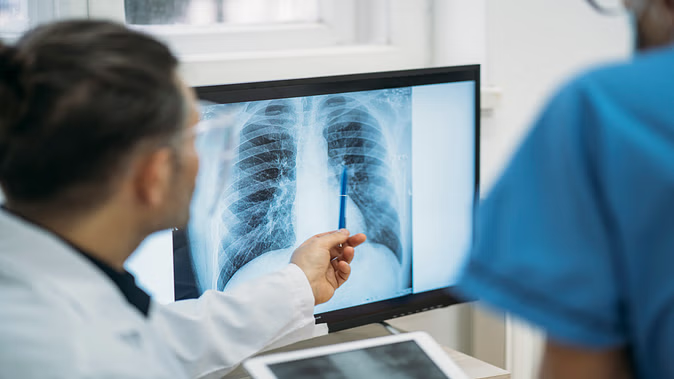Communist Party of India (Marxist) General Secretary Sitaram Yechury died on Thursday (September 12). He was suffering from a serious respiratory disease, and he was admitted to the All India Institute of Medical Sciences (AIIMS) for about a month. The party said in a statement, "We are very sad to inform you that our dear comrade Sitaram Yechury, general secretary of CPI (M), passed away today, September 12, at 3.03 pm at AIIMS, New Delhi. He was suffering from a respiratory tract infection, which led to complications.

It is worth noting that every year lakhs of people die due to various respiratory diseases. According to reports, Sitaram Yechury was suffering from acute respiratory tract infection.
Health experts say that this disease can happen to a person of any age. This infectious disease is considered dangerous and life-threatening, especially for children, the elderly, and people with immune system disorders. Let us know about the causes, symptoms, and prevention of this infection.
Know about respiratory tract infection.
Acute respiratory tract infection is an infection that can interfere with the normal breathing process. Its most effect is seen on the upper respiratory tract, starting from your sinuses and affecting the larynx. It can cause respiratory tract infections. In some people, it infects the lower respiratory tract, starting from your larynx and causing serious infection in the lungs. Both viruses and bacteria can cause this infection.
Why does this infection occur?
When a virus or bacteria enters your respiratory tract, it causes respiratory tract infection. For example, if you touch an infected surface or shake hands with a sick person and then touch your mouth, nose, or eyes without washing your hands, then the germs from the hands can enter the body and infect you.
These infections are quite common and anyone can fall prey to it. Usually, the body's immune system eliminates these pathogens. However, people with weak immunity may have a serious and long-term infection due to this.
What are its symptoms and who is at greater risk?
Health experts say that children wash their hands less frequently than adults, and they also keep touching their eyes, nose, and mouth frequently, which can increase the risk of respiratory infections. Upper respiratory tract infections usually last one to two weeks, although they can last longer in people with low immunity.
It is very important to pay attention to the symptoms that occur early in the infection and get treatment.
Congestion in the sinuses or lungs or a runny nose.
Cough-sore throat.

Body aches-fatigue.
Some people also have a fever of up to 103˚F and chills.
Difficulty breathing.
How to prevent respiratory infections?
It is important to keep some things in mind to prevent respiratory tract infections. Practice hygiene to prevent respiratory tract infections.
Wash hands before eating or preparing food.
Use your arm or tissue paper while coughing and sneezing and then wash hands.
Make it a habit to wash hands after touching a surface, shaking hands, or regularly.
Continue to follow a healthy lifestyle and immunity-boosting measures.
Drink plenty of fluids, get enough sleep, and avoid smoking while you're sick.
Getting a flu vaccine can help protect you from this type of infection.
(PC: ISTOCK)










